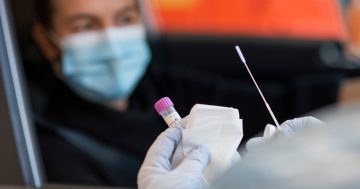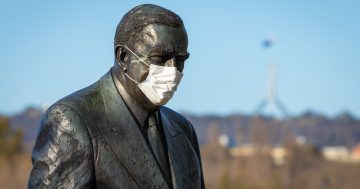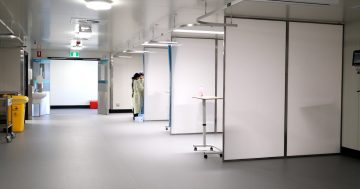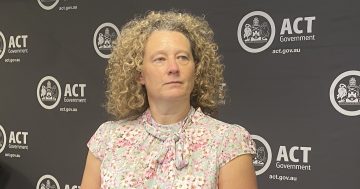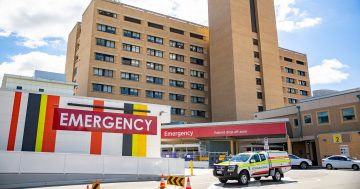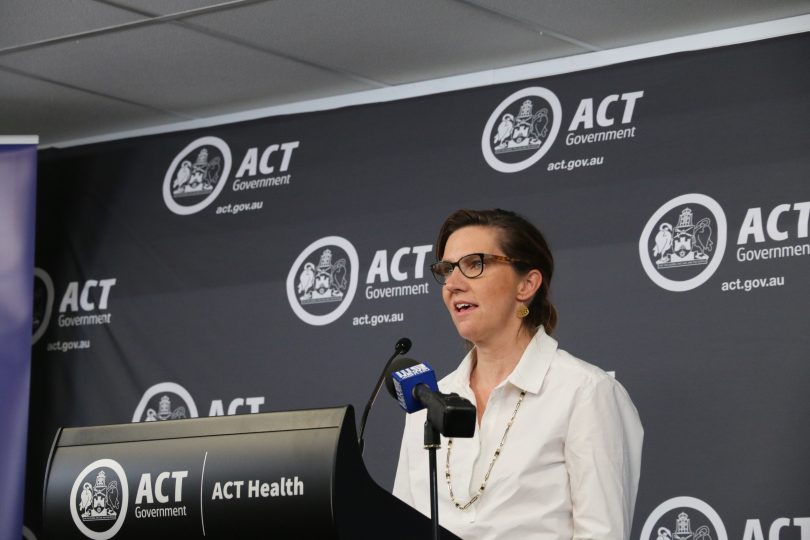
Deputy Chief Health Officer Dr Vanessa Johnston urged anyone with even mild COVID-19 symptoms to get tested immediately. Photo: Dominic Giannini.
COVID-19 has been detected in ACT wastewater (sewage) for the first time, prompting an urgent call from ACT Health for any member of the community to get tested if they have even the mildest COVID-19 symptoms.
The main symptoms of COVID-19 are fever, cough, sore throat, shortness of breath, and loss of smell or taste. Less common symptoms are runny or blocked nose, muscle pain, joint pain, diarrhoea, nausea, vomiting and loss of appetite.
Symptoms can develop between two to 14 days after you are exposed to the virus. Most commonly, symptoms develop five or six days after exposure.
The positive detection was found in a sewage sample collected on 27 January from the Belconnen wastewater testing location.
The Belconnen testing site covers wastewater from Aranda, Belconnen, Bruce, Charnwood, Cook, Dunlop, Evatt, Florey, Flynn, Fraser, Giralang, Hall, Hawker, Higgins, Holt, Kaleen, Latham, Lawson, Macgregor, Macquarie, McKellar, Melba, Page, Scullin, Spence, Strathnairn and Weetangera.
All other locations in the ACT tested on 27 January returned negative results.
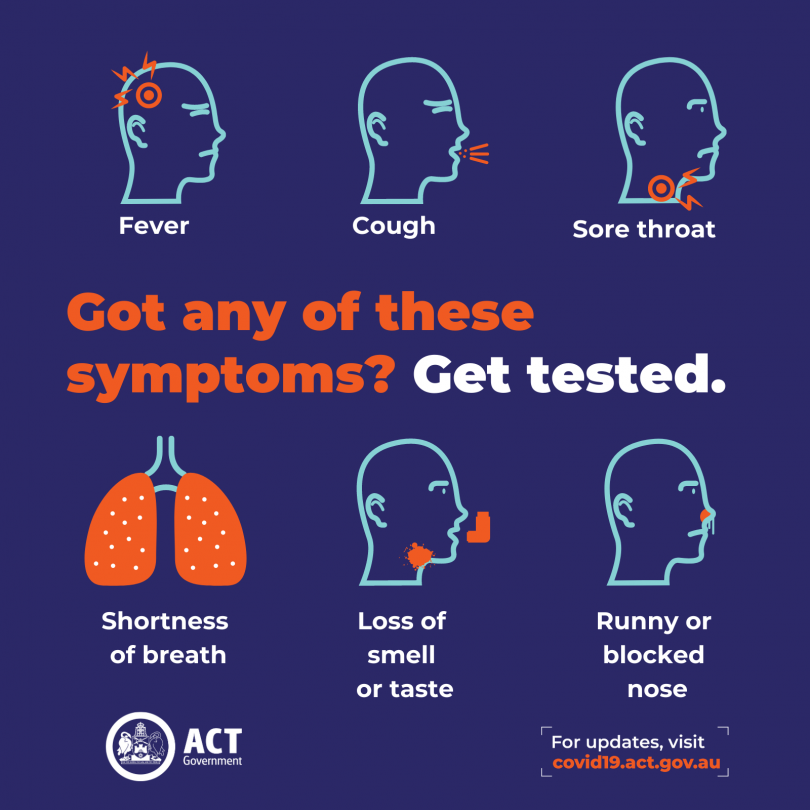
COVID-19 symptoms. Image: ACT Health.
Health Minister Rachel Stephen-Smith said that as yet there are no confirmed active COVID-19 cases in the ACT.
“We know this news may be concerning for residents in the Belconnen area; however, this news does not automatically mean that we have an active case here in the ACT,” Ms Stephen-Smith said.
“Although there is no cause for alarm, this is an important reminder that COVID-19 has not gone away and that we need the community to remain on alert.”
Deputy Chief Health Officer Dr Vanessa Johnston said ACT Health is treating this detection with caution and is investigating the matter.
“It may represent a person who has recovered from COVID-19 and is no longer infectious but is continuing to shed the virus. This shedding can happen for several weeks after the person is no longer infectious. This detection may be indicative of a person in this category, who has recently returned home or visited the ACT,” Dr Johnston said.
“For example, we know that ACT residents continue to return to Australia from overseas. These individuals undergo hotel quarantine in other states and territories before returning to the ACT. Some of these residents develop COVID-19 in hotel quarantine and then return to the ACT once they have recovered and are no longer infectious.
“However, it may also be an undetected active case, which is why the community should remain alert, but not alarmed.
“We urge anyone who lives in, works in, or has recently visited the Belconnen area, to get tested for COVID-19 if they are experiencing even the mildest of symptoms, and to self-isolate until they receive a negative result. This is particularly important for anyone who has recently travelled outside the ACT.
“If there is an active case we are unaware of, it is vital that we detect this quickly to keep the community safe.
“Even if you have very mild symptoms, like a scratchy throat or runny nose, you should get tested for COVID-19.
“If you do not have any symptoms, there is no need to get tested,” said Dr Johnston.
ACT Health will continue to investigate and further wastewater testing will be conducted next week as part of the ongoing Wastewater surveillance program in the ACT.
For information on the location and opening times of COVID-19 testing clinics in the ACT, visit COVID19.act.gov.au.












